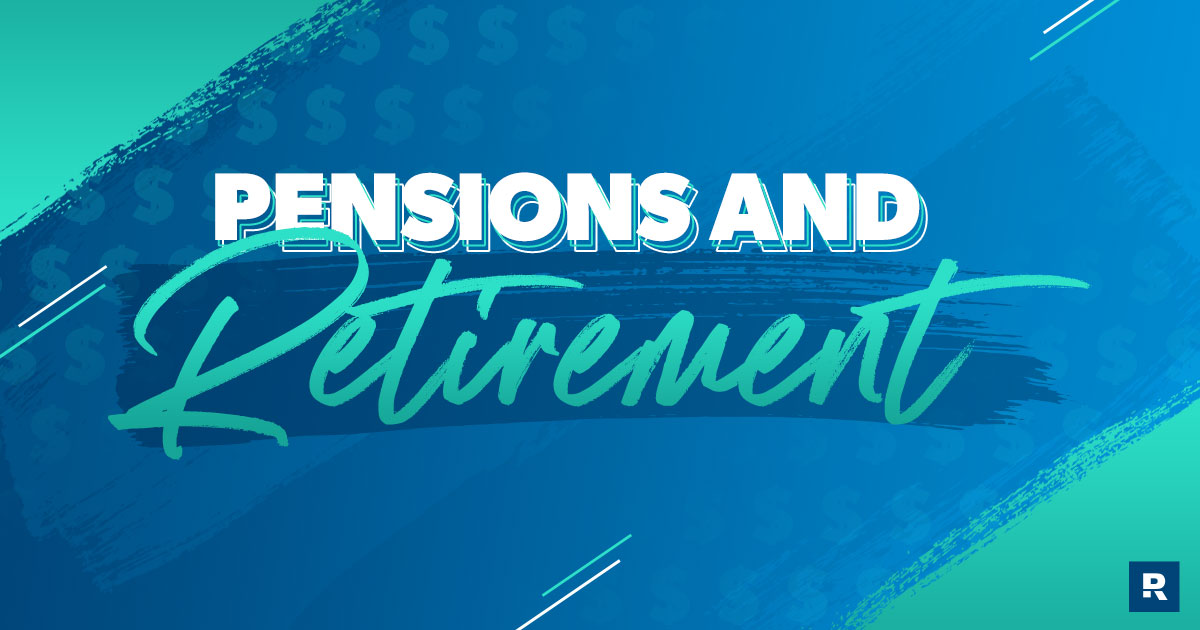Will My Pension Be Enough for Retirement?
4 Min Read | Sep 6, 2023

If somebody asks, “How much will my pension be?” then they’re probably a Baby Boomer or older, they’re a part of a union, or they work in the public sector (government, police, teachers, etc.). Younger generations don’t ask that question because the pension is an endangered species. It’s been replaced by the 401(k).
Here’s why it’s still important to know about pensions: Even if you won’t get one, your parents might. And you want to be aware of the basics so you can help them make decisions about their money.
What Is a Pension?
Back in the day, many companies contributed money to a retirement account for each of their employees. Then, when the employees retired, they would get a fixed payout each month or one lump sum amount. How much you got depended on how long you worked for the company and the salary you had. Think of it like a retirement account that your employer funded instead of you.
Fast-forward to the present. Only 18% of people who work in the private sector (not the government) are covered by a pension (also called a defined benefit plan). Today, union workers and the public sector (teachers, police officers, etc.) make up the majority of pension-holders. Most companies have replaced the pension with the 401(k).
Is My Pension Safe?
In today’s rapidly changing economy, some companies can’t sustain pension plans like they did in the past. Unfortunately, those companies decrease the amount of pension money each person gets. The good news is that if the company in question was a member of the Pension Benefit Guarantee Corporation (PBGC), it’s likely that at least a part of your pension is safe. If you’re close to retirement, chances are you’ll receive your full pension payment, but the amount may decrease if the company can’t keep its pension fund afloat.
Can I Take My Pension With Me?
If you change employers and are vested in a pension, you’ll be eligible for the pension payout when you retire. However, you can’t take that money with you to another company or roll it over into a traditional investment like an IRA or 401(k). You don’t lose the money though. When you decide to retire, you’ll need to get back in touch with the company holding your pension and apply to get your benefit.
How Do I Know If My Pension Is Enough?
A lot of people want to know if their pension will be enough to take care of them in retirement. The answer is maybe. It depends on a lot of factors. Here are some questions you need to answer:
- How much will your pension payments be? When do they start? (If you don’t know, the company holding your pension can help you find out.)
- Will you have other revenue streams, like IRAs or mutual funds outside your work?
- What is your current financial situation? Are you debt-free? Is your home paid off?
- What you want to do in retirement? What is your lifestyle expectation in retirement?
To get a real-time picture, you need to decide how much you think you’ll need each month in retirement then subtract the amount of money you think you’ll have each month in retirement. How big is that gap? If your expenses are close to your projected payouts, then you’re on track. Keep doing what you’re doing or consider investing more.
However, if there’s a big difference between what you think you’ll need to budget for each month in retirement and the money you’ll have each month in a pension or your retirement fund, then you have three choices.
- You can adjust your lifestyle expectations to match the amount of money you think you’ll have in retirement.
- You can increase the amount of money you’re currently saving for retirement.
- You can plan to work part-time to supplement your income in retirement.
Now, the third option may or may not be available to you. Life happens and may cut short your working years, so keep that in mind.
How much will you need for retirement? Find out with this free tool!
The best advice we can give you is to meet regularly with an investing professional you trust. That person can track your financial progress and work with you to put yourself in the best financial situation possible. The older you get, the more often you need to meet with your investing pro to sharpen the focus on your retirement picture.
Preparing for the future takes planning, but it also takes hard work and ongoing effort. Your retirement is in your hands, so don’t let it slip away because you weren’t ready! Find a financial professional.
Make an Investment Plan With a Pro
SmartVestor shows you up to five investing professionals in your area for free. No commitments, no hidden fees.
This article provides general guidelines about investing topics. Your situation may be unique. To discuss a plan for your situation, connect with a SmartVestor Pro. Ramsey Solutions is a paid, non-client promoter of participating Pros.


